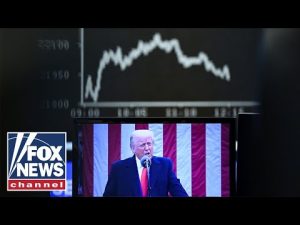A student named Mahmoud Khalil has become the focus of scrutiny, particularly due to his actions and comments regarding Hamas. Khalil, a Columbia University graduate student and anti-Israel activist, recently met with lawmakers on Capitol Hill, raising eyebrows for his refusal to outright condemn Hamas, a known terrorist organization. While he protested against what he calls the war on Palestine, he finds himself in hot water for not denouncing a group that has provoked violence and unrest.
This situation highlights a troubling trend among some activists who resist condemning radical groups. Khalil’s reluctance to plainly denounce Hamas suggests a deeper sympathy or connection—one that raises questions about his motives and allegiances. It’s alarming that a person who is not a citizen but is allowed to remain in the country as a lawful permanent resident has the audacity to dismiss concerns about a group that explicitly calls for violent acts against Americans and our allies.
Critics have pointed out the absurdity of protecting individuals like Khalil, who is seen as undermining U.S. relations with key allies in the Middle East. The progressive politicians supporting him argue for an approach that respects dissent, yet they fail to recognize the difference between free speech and supporting terror. It’s important to understand that advocating for the rights of one group does not necessitate the endorsement of violence against another.
Many Americans are increasingly frustrated with the actions and rhetoric of individuals like Khalil. His statements attempt to conflate humanitarian concerns with a refusal to address the fundamental issues surrounding Hamas. It is both disheartening and irresponsible to shift the narrative away from the troubling and violent tendencies of an organization that does not shy away from declaring its intention to destroy Israel and destabilize the region.
Furthermore, the refusal to take a clear stand against Hamas reflects a broader issue of anti-Semitism on various campuses and within activist circles. There is a notable difference between critiquing a government and endorsing a group that engages in terror. The ongoing inability of certain activists to place blame where it belongs raises serious concerns, begging the question: do they truly believe in peace, or are they simply using the Palestinian cause as a cover for support of violence against innocent lives?
The call for accountability should echo loudly among Americans who value justice and peace. It’s time to demand clear and unequivocal statements from those who choose to engage in dialogue about Middle Eastern conflicts. This is about more than politics; this is about distinguishing right from wrong and refusing to allow rhetoric that feeds into violence masquerade as a fight for justice. In doing so, we must protect our nation’s interests and hold individuals accountable for their beliefs and actions while advocating for true justice and peace.







